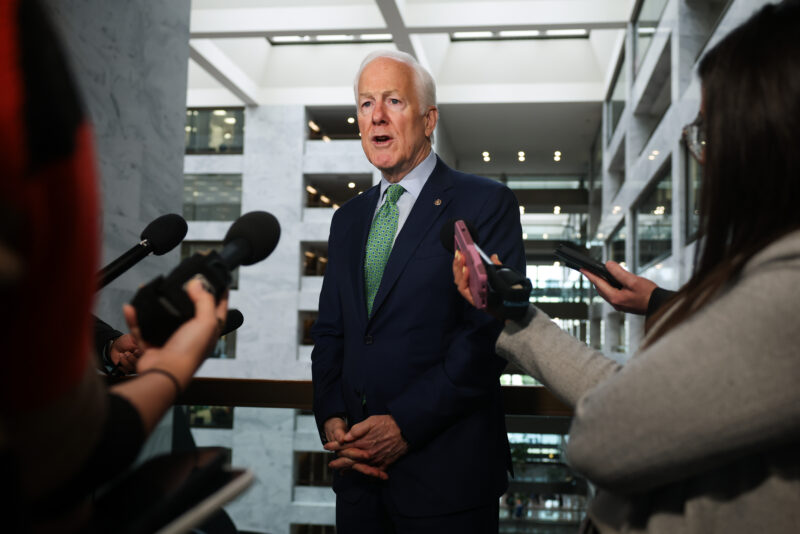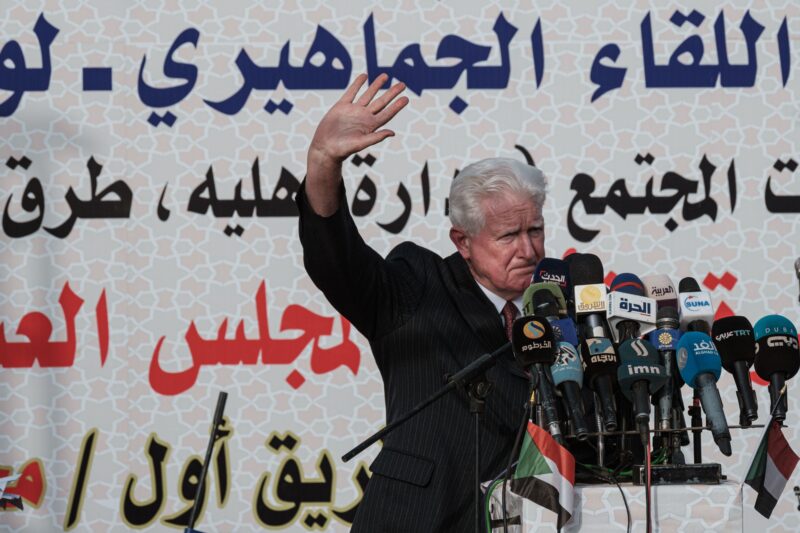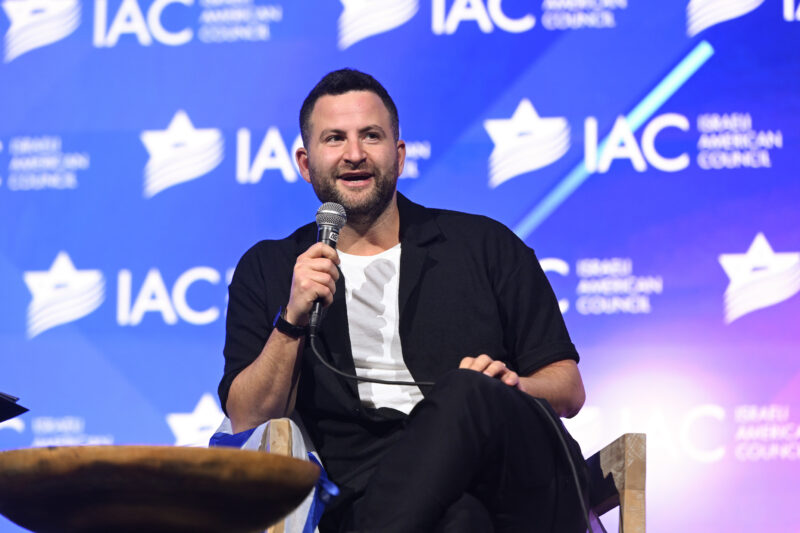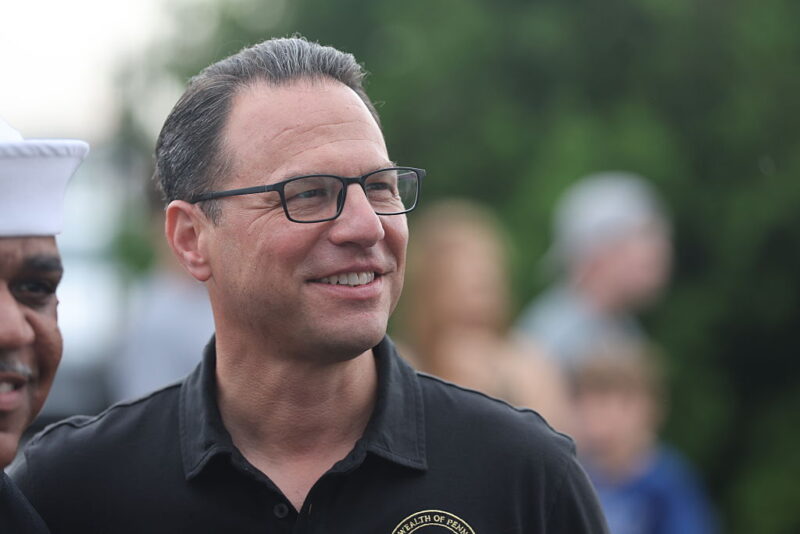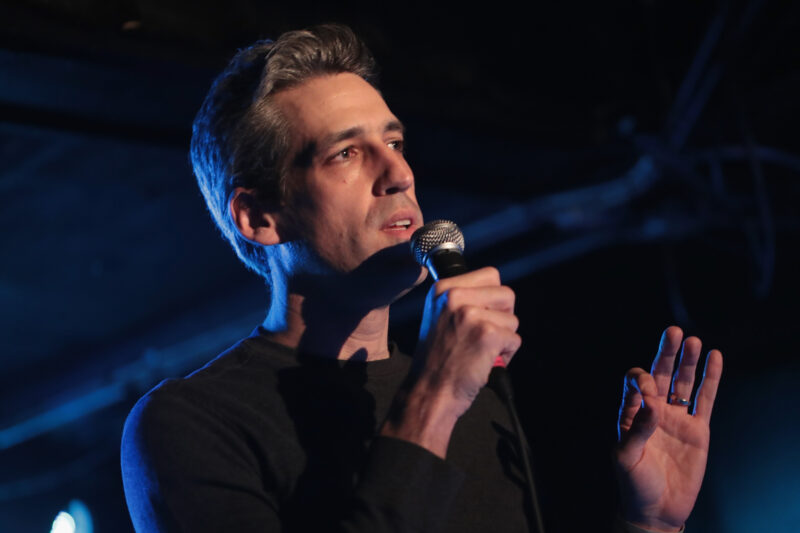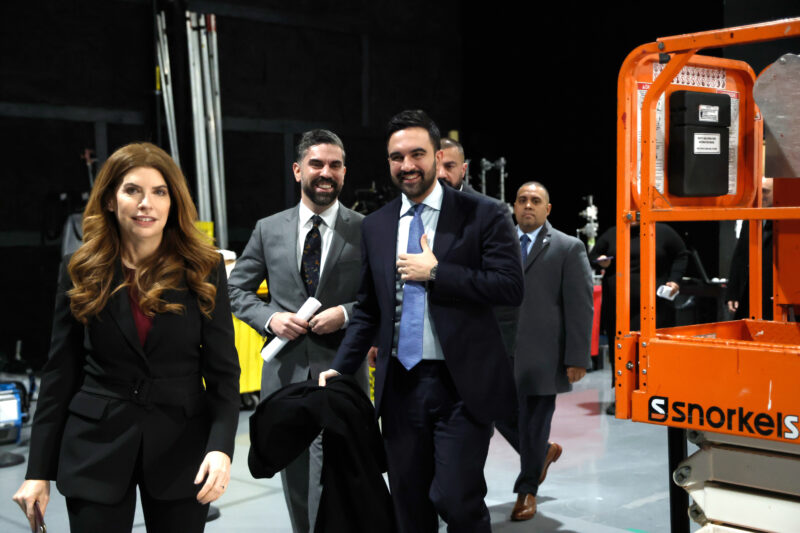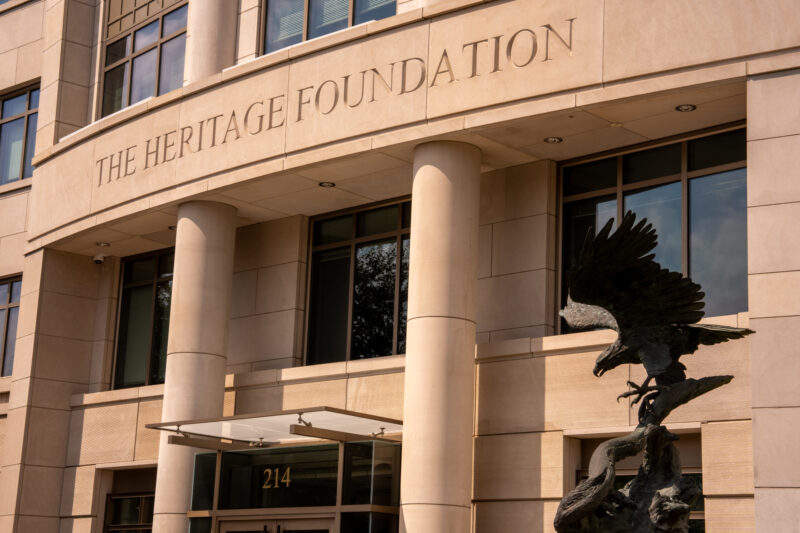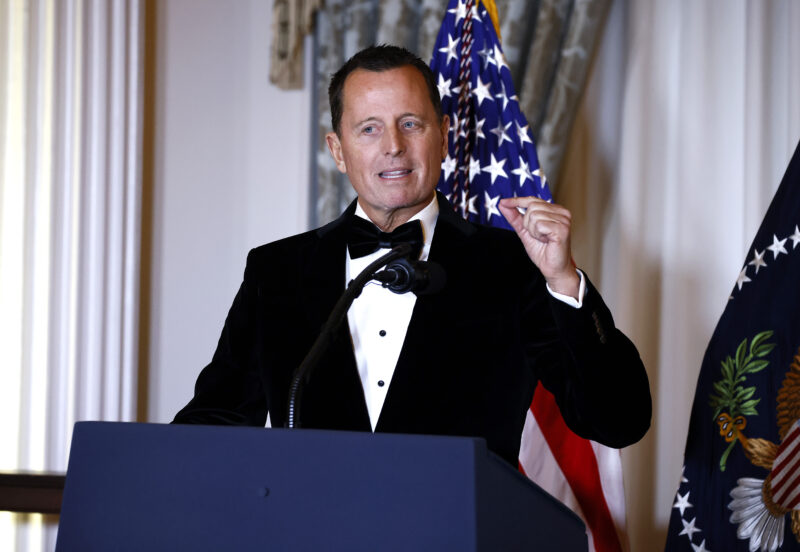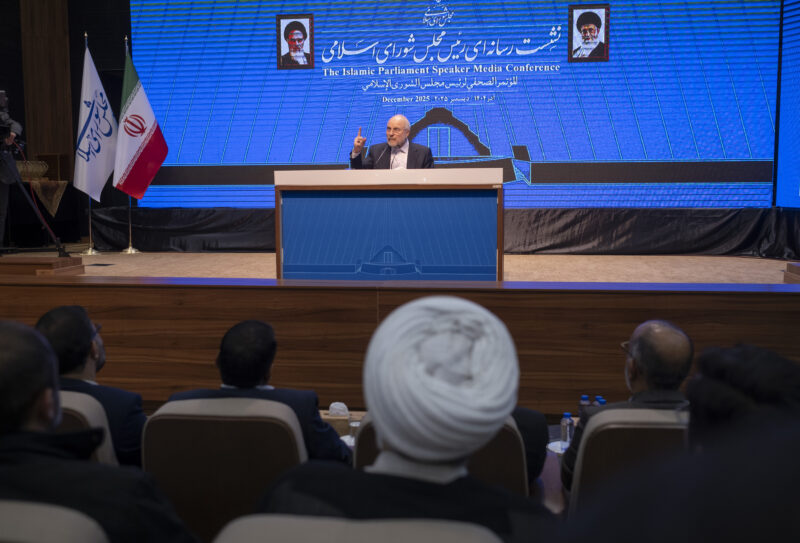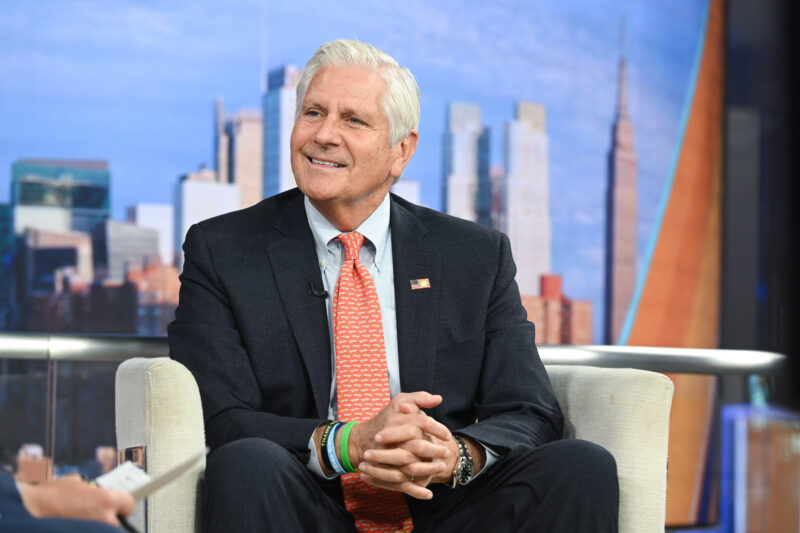Jewish, Israeli Amazon workers say company tolerating antisemitism by employees
Pro-Israel employees lament management doing less for Israel and antisemitism than for other favored causes like BLM

Yasin Baturhan Ergin/Anadolu via Getty Images
In this photo illustration, logo of 'Amazon' is displayed on a mobile phone screen in front of the logo of ''Meta'' in Ankara, Turkiye on November 14, 2023.
Amazon employees in three different countries expressed dissatisfaction with the company’s response since the start of Israel’s war with Hamas, accusing the company of turning a blind eye to messages in internal channels in recent weeks that the employees felt incited violence or denied Oct. 7 atrocities.
Three days after Hamas massacred and kidnapped Israelis, Amazon CEO Andy Jassy posted: “The attacks against civilians in Israel are shocking and painful to watch. I have been in touch with our teammates there to make sure we do everything we can to help support their families and their safety, and to assist however we can in this very difficult time. We’re also in close contact with our humanitarian relief partners on the ground and will be supporting their efforts. Hoping that peace arrives as soon as possible.”
Some Amazon employees who spoke with Jewish Insider on condition of anonymity to discuss internal company matters contrasted the response with Amazon’s millions of dollars in donations to causes like Black Lives Matter, Stop Asian Hate and Ukraine, while Jassy’s post about Israel did “not condemn anything,” and the idea seemed to be “as ambiguous as they can [be], the better,” one source in the company lamented.
Jewish and Israeli Amazon employees also pointed to messages on internal communications channels that they viewed as threatening or offensive.
One community in “phonetool,” an internal messaging app, is called “I stand with Palestine!” with the description being “from the river to the sea, Palestine will be free,” regarded by many as a call for the elimination of Israel and genocide of the Jews living there.
Elevators in Amazon offices in New York and Seattle were vandalized with the phrase in English and Arabic, and employees notified security.
An employee posted a graphic, later removed, of a bleeding map of Israel wrapped in a keffiyeh and traditional Arab embroidery, with the text: “The land that was killed and sold before the Mandate, the land that is still being killed and sold at this moment, the land that will not die will remain in our hearts. We will plant our hatred in our children. It will plant its love in our grandchildren.”
Meanwhile, in screenshots from the “Arabs at Amazon” Slack channel, first reported by Yanir Kuzin of Israel’s Army Radio and verified for JI by Amazon employees, group members approvingly called Palestinian terrorist groups “the resistance” in Arabic.
Another said he “never trusted” the reports of a massacre by Hamas – of which there is extensive evidence – wondering “how the same group of people can de-capitate [sic] 40 babies, then rape and so on (as they claim) then at the same time be humane to some people as some testimonies indicated.”
The group spread conspiracy theories from the extremist website Grayzone that Israel was to blame for the mass casualties on Oct. 7.
In another internal channel, an employee wrote: “As people call Hamas terrorists, I find it upsetting that the actions of Israel are not considered terrorism.”
These examples and more were raised in complaints about inappropriate behavior via the appropriate internal channels, with little response, according to screenshots viewed by JI.
“Most of the [complaints] we have opened have not been resolved or dealt with,” a source in the company said.
Amazon has over 1,000 employees in Israel. Those who requested it were provided with up to NIS 10,000 ($2,600) in financial assistance, a doubled meal budget for the first month of the war and emotional support sessions, sources at the company confirmed, though Amazon has not made a public statement about the matter beyond Jassy’s post.
Members of the Arab employee resource group have been frustrated with a lack of response from Amazon to Israeli strikes on Gaza, according to The Washington Post, and noted that Jassy did not send any message to Palestinian or Arab employees affected by the war.
They told the Post that they are “dealing with harassment” and “scared to speak out,” and that petitions circulated on Slack calling for a cease-fire or to drop Amazon’s contract with the Israeli government, called Project Nimbus, were removed, while fundraising for the Palestinian Children’s Relief Fund was permitted.
A letter from pro-Palestinian employees called for Amazon to “protect and guarantee freedom of speech” by rejecting definitions of antisemitism that call anti-Zionism antisemitism, to “acknowledge the continued assault upon Palestinians’ basic human rights under an illegal occupation” and to create a relief fund for Palestinians.
Amazon customers have also complained about the company, with Shira Goldman of Madison, Wisc., sharing photos on social media of a copy of Noa Tishby’s book Israel: A Simple Guide to the Most Misunderstood Country on Earth with stickers on pages throughout the book with the misspelled message “Free Palastine” on them.
Steven Phillips, a former Amazon employee from London, started a group for Jewish “Amazonians” in 2018. At first, he told JI, the idea was “to try to arrange drinks and maybe an event.” When a Jewish employee told Phillips he felt targeted for being Jewish during a Diversity, Equity and Inclusion (DEI) session in 2019, Phillips attempted to get formal recognition as an affinity group.
“I worked with some colleagues in the U.S. and Israel and began, through 2020, to create a formal group, having taken a mandatory nearly two-hour training course on [DEI] following George Floyd[‘s killing by police] and [Black Lives Matter] which contained zero Jews and zero reference to Jews,” Phillips recounted.
Phillips followed the DEI department’s guidance, and submitted a paper identifying the group as “culturally, ethnically, spiritually and religiously” Jewish.
As he and his colleagues waited for two years for recognition, they acted to have antisemitic products removed from Amazon, organized events like Hanukkah candle lighting, as well as kosher meals and daily prayers at a company conference. They could not, however, take part in diversity recruitment activities or be included in DEI forums as long as they were not recognized.
Two years later, the application was rejected on grounds of Jews being a religious group, though Phillips noted he described himself as “an atheist Jew.” He was told that Jews could be an “unfounded interest group…like folk who went to the University of Michigan or people who like to drink coffee.”
There are 13 affinity groups at Amazon, including ones for protected classes like Black, Asian, LGBT or disabled workers, but also affinity groups for employees with families, and “body positive peers.”
“Given all of the above, I am totally unsurprised by the way things have been [handled] during this war,” Phillips said. “Amazon made it clear that they don’t care about Jews, even though the CEO and the CEO of [Amazon Web Services] are both Jewish.”
“Whatever statement Amazon would make, they would be crucified by one side or the other, but by making such a meek and generic statement, they have managed to…anger both their Arab and Muslim employees and their Jewish and Israeli employees,” a source in the company said.
Brad Glasser, an Amazon spokesperson, said in response to the employees’ allegations: “We don’t tolerate discrimination or harassment of any kind in the workplace. We investigate all reported incidents of such behavior and take appropriate action against any employee who is found to have violated our policies, up to and including termination.”
As for the book with the “Free Palastine” stickers in it, Glasser said that Amazon takes the incident “very seriously,” apologizing to Goldman and Tisbhy and firing the person who defaced the book.
“We immediately launched an investigation into the defaced book, identified the person responsible, and that person no longer works at Amazon,” Glasser said. “Customers who received a defaced item can contact our customer service team to receive a full refund or replacement.”
A source at Amazon Web Services said, in response to the calls to cut ties with the Israeli government, that “AWS is focused on making the benefits of our world-leading cloud technology available to all our customers, wherever they are located.”



























